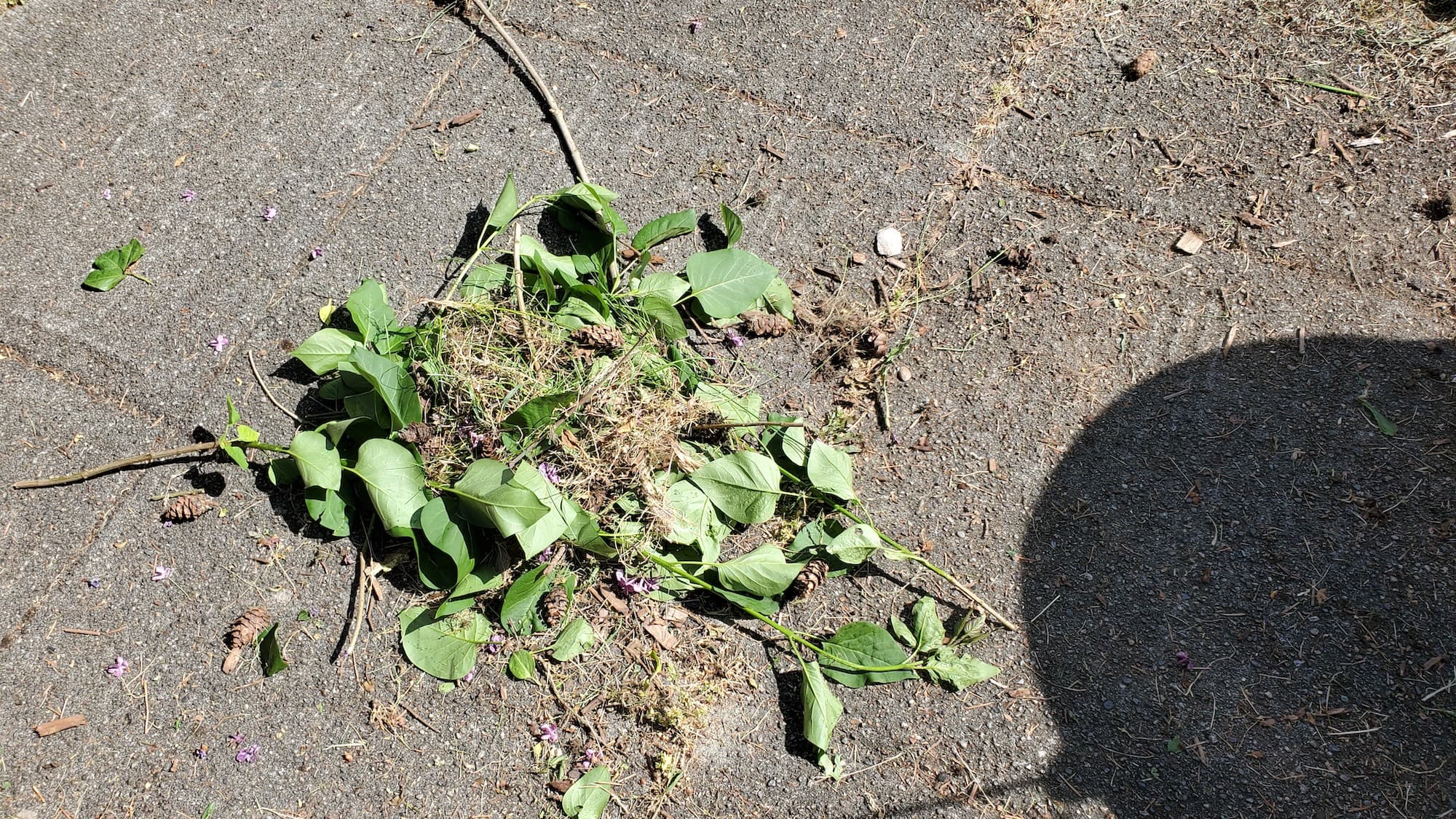West Seattle Slope Stabilization Clearing
Homeowner’s Issue
West Seattle yards often sit on steep ground carved by glacial action and engineered fill—think High Point cuts or the bluff above Alki. Those slopes get a lot of winter rain, patchy sun exposure (south faces dry quicker; north faces stay mossy and shady), and thin, rocky topsoils that slump when vegetation is removed. Many homeowners see ivy, blackberry, and holly taking over, which hides roots and creates slippery, unstable ground. Poor grading and clogged downspouts funnel runoff down slopes and into driveways or alleys, so small failures can turn into big drainage problems by the next heavy storm.
HOAs and neighbor sight-lines matter here; overgrown slopes lower curb appeal and increase liability for falling branches or erosive washouts. Seattle’s rainfall pattern—wet winters and dry summers—means the planting window and erosion controls must be timed to settle the soil before the rainy season. Our focus is practical: stop soil loss, cut maintenance, and replace invasive monocultures with hardy native groundcovers and shrubs that root deep, slow runoff, and look tidy year-round. We avoid chemical herbicides, use manual and organic controls, and prioritize solutions that last through West Seattle’s microclimates—from Delridge gullies to sunny pocket slopes near Fauntleroy.
Our Quality Service
We assess the slope, pick sustainable fixes, then execute with compact, low-impact tools: hand saws, pruning rigs, battery-powered blowers, and small excavators if grading is necessary. Typical jobs run from a half day for a small hillside to 2–3 days for larger, terraced slopes. We install erosion-control measures like coir logs, jute netting, and biodegradable mulch blankets, and plant natives (salal, ferns, kinnikinnick, hardy grasses) timed for fall or early spring establishment.
Local insight: West Seattle soils are variable—rocky with pockets of silt—so we focus on drainage first and plant selection second. We work around Seattle’s wet season to minimize exposed soil during heavy rains. Water restrictions in summer mean we favor drought-tolerant natives and mulching to reduce supplemental irrigation. The result is safer slopes, reduced maintenance, and improved curb appeal without toxic chemicals.
What’s Included
- Site assessment and slope safety check
- Mechanical and hand clearing of invasive vines and brush (no herbicides)
- Removal of hazardous dead wood and selective pruning
- Installation of erosion control (coir logs, jute, biodegradable blankets)
- Light regrading to improve surface runoff and access
- Planting of native, deep‑rooted stabilizers
- Haul‑away of green waste or option to leave for compost/green‑bin
Options / Upgrades
- Heavy equipment for larger grading or terracing
- Mulch + fabric (biodegradable fabric only)
- Organic weed management program (manual follow-ups + mulch)
- Gravel or permeable steps for access
- Planting plan upgrade with native shrubs and rootstocks
Before & After / Expectations
Expect noise, crews on-site, and some temporary bare soil immediately after clearing. Small areas are tidy within 24–48 hours; larger slopes may need a few weeks to settle and for plantings to take. We haul most debris off-site unless you prefer green‑bin drop or staged composting.
Care tips for West Seattle:
- Plant in fall or early spring to use winter rains for root establishment.
- Water new plantings deeply and infrequently through the first dry season; early morning is best.
- Watch for weed flushes in spring and late summer—manual removal and a thick mulch layer curb regrowth.
- On shaded north slopes, anticipate moss and ivy pressure; repeated manual removal plus groundcover planting reduces recurrence.
FAQs (3–5)
Q: Will you use herbicides to kill ivy/blackberry?
A: No. We use mechanical removal, root extraction, and organic follow‑ups only.Q: How long until plantings stabilize the slope?
A: Expect noticeable stabilization in one growing season; strong root systems develop over 1–3 years depending on species and exposure.Q: Do you need driveway or street access?
A: Yes. We need clear access for tools and haul trucks. Tight alley or stair-only access may add time and cost.Q: Do you handle permits?
A: If your project triggers city or shoreline permits (steep bank work, large trees, or significant grading), we’ll advise you and can work with your chosen permit contractor.
Call to Action
If your West Seattle slope is slipping, messy, or a liability, book a free estimate. We schedule quick onsite visits and give straightforward options—no hype, just practical fixes that last. Email neatandtidyseattle@gmail.com or call/text 206-538-9344 to set a time. Local experience from Alki bluffs to High Point means solutions that fit the grade and the neighborhood.










